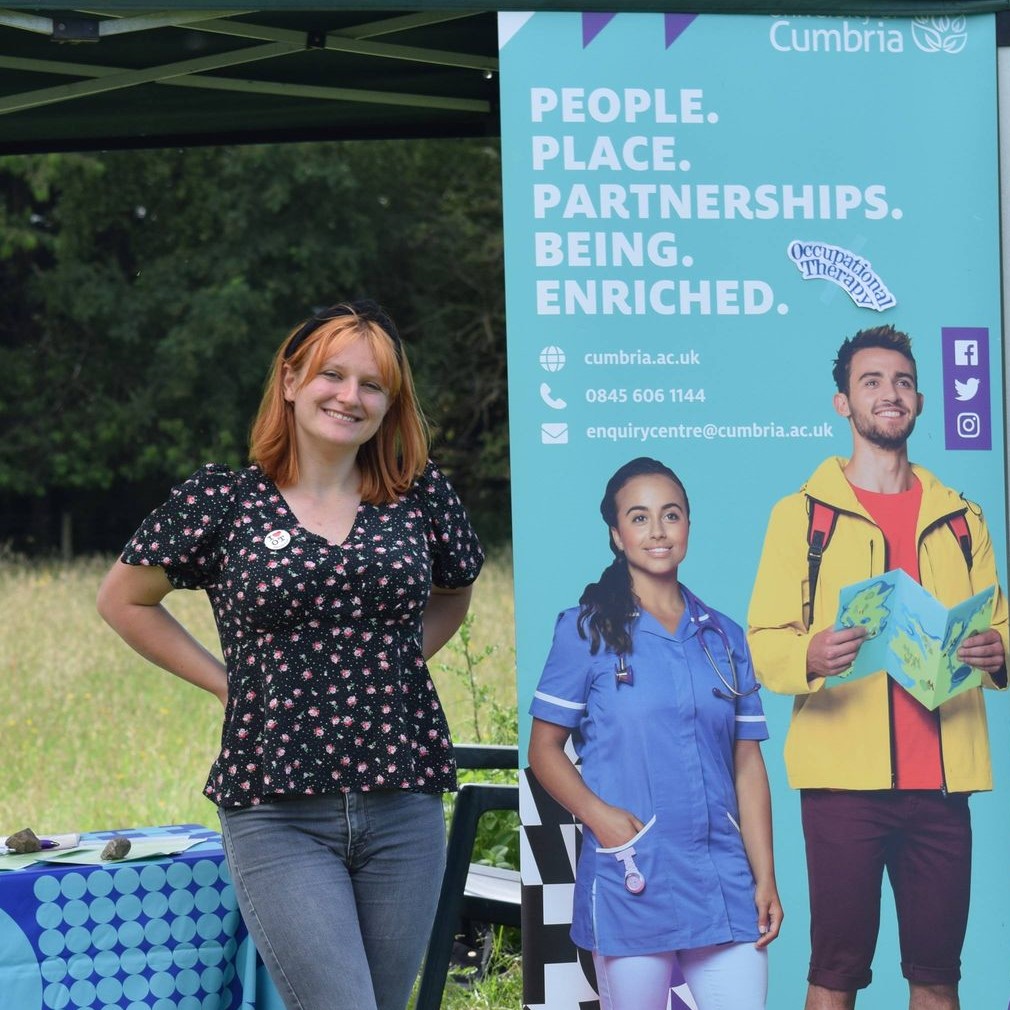

What did you want to change in your life?
I started my journey on the MSc Occupational Therapy course at Cumbria in September 2020. During the Covid-19 lockdown, like many others, I had a hard think about what I wanted to do in life. After a lot of research and talking with some good friends, I applied to study Occupational Therapy. I have always wanted to work in a caring profession and have spent time volunteering and working in outdoor settings with people with additional needs.
What have you found difficult to overcome in your journey so far?
My previous degree was in Fine Art which, at the time, I thought was irrelevant to this Masters course, particularly at the beginning of the year where I felt a huge gap in knowledge between me and my fellow classmates. Looking back, I’m sure everyone felt the same way about themselves. Starting a Masters degree can be daunting, particularly during a pandemic. However, after some time, we all became close in our covid bubbles and were able to support each other through the start of term.
What do you like most about studying at Cumbria?
I am so happy to have applied to the University of Cumbria as I have met some of the loveliest people, staff and students, who have made a challenging transition so much smoother. It also helps that Cumbria has some beautiful landscapes, a key factor in my decision to come here.
I have met some of the loveliest people, staff and students, who have made a challenging transition so much smoother.
What have you enjoyed so far on your course?
My second practice placement by chance was a role emerging placement on a farm in Cumbria. It was very different from my first placement which took place on a hospital ward during a Covid outbreak. The farm was very hands-on in terms of occupations and engagement, taking place outside in nature in all weather conditions! I got to work with a range of school students with varying needs and not having a therapist at the farm meant I was free to find my own style of looking at things and was able to show some creativity, backing it up with research of course. I felt that I was able to capture the true philosophies of OT such as being client-centred and occupation focused, building up individual’s skills and abilities best suited for them. Not only this, but I was able to use my background in art, particularly with the school groups to engage them in learning about organic farming and nature. Another student and I also had the opportunity to attend Open Farm Sunday once our placements had ended to talk with hundreds of visitors interested in learning more about the farm and about the role of OT.
What’s next for you?
I feel privileged to have had these experiences and I am looking forward to continuing the course next year to see where else OT may take me if not on a farm or an acute ward.
